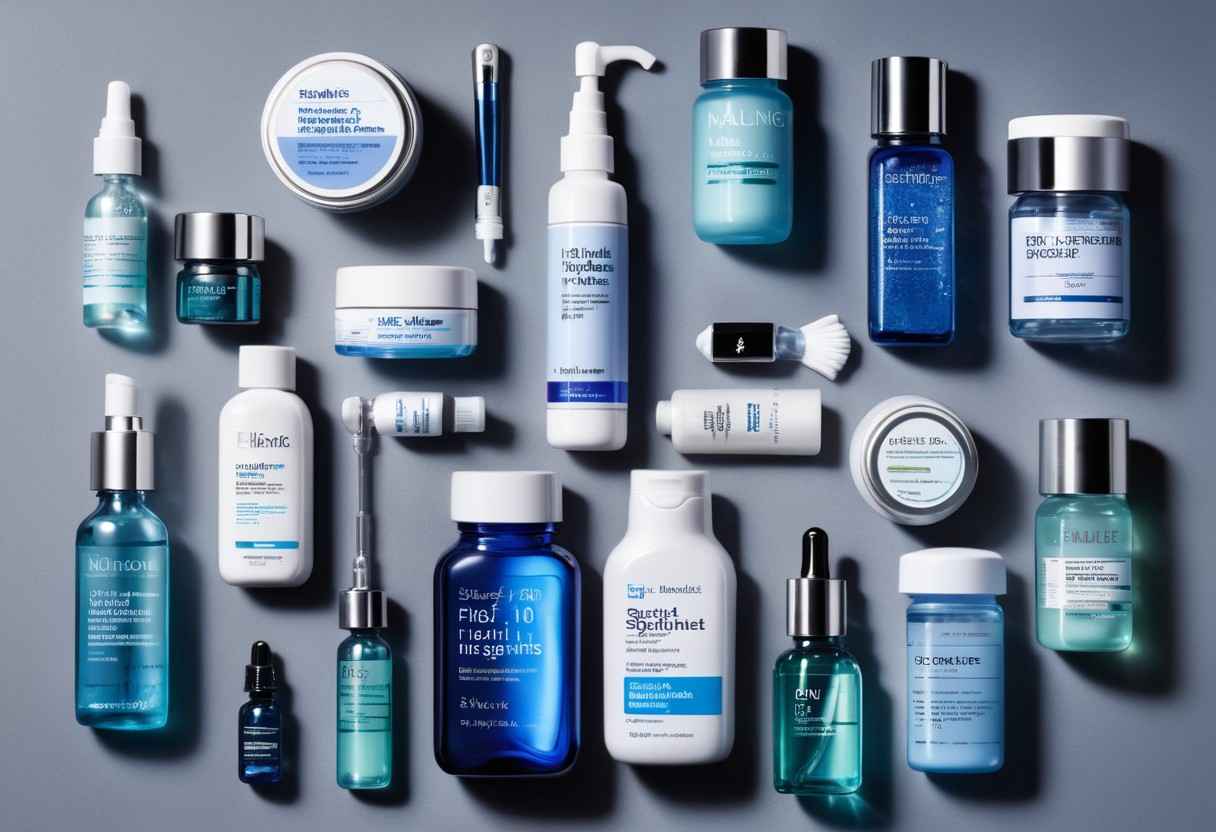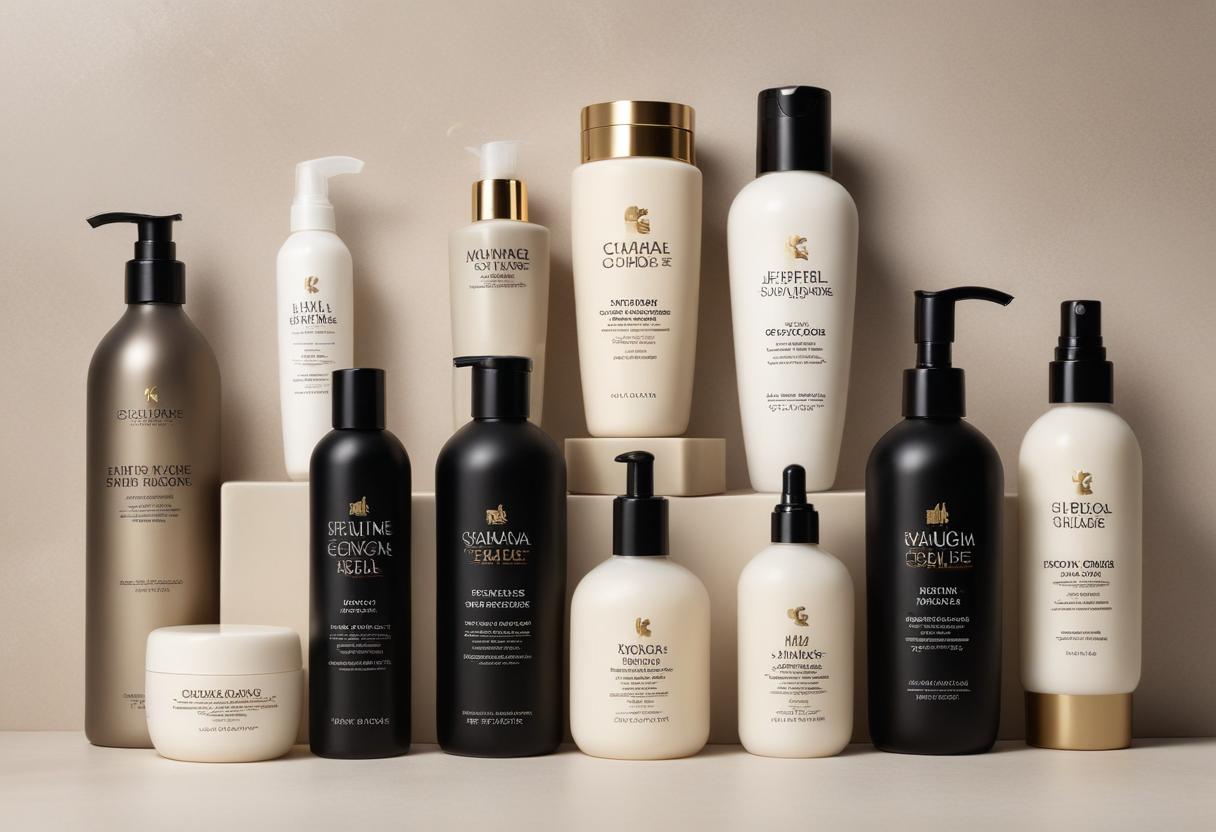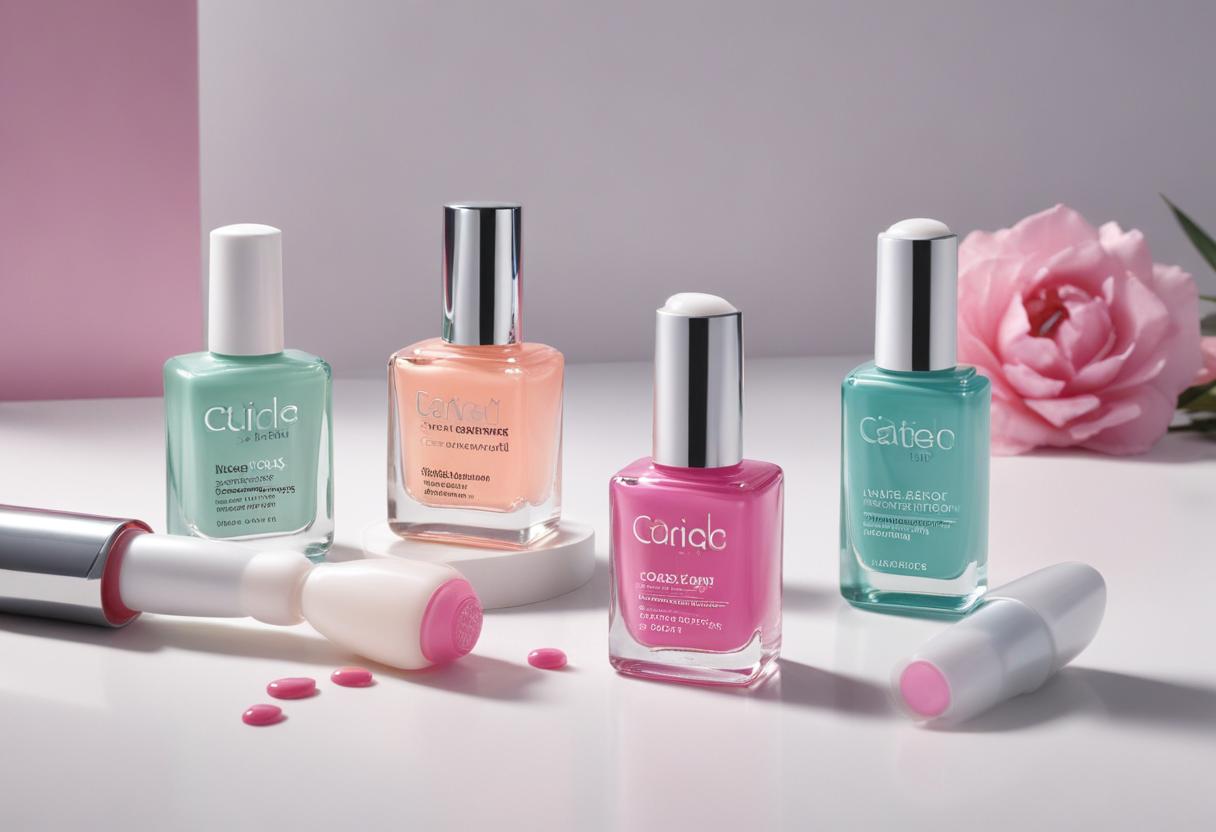In the quest for healthy, glowing skin, knowledge of the right skincare ingredients is paramount. With myriad products crowding shelves, understanding which truly nourish your skin is pivotal. Herein, we delve profoundly into premier skincare ingredients repeatedly recommended by dermatologists and connoisseurs for radiant, healthy skin.
1. Hyaluronic Acid
Benefits: Hydration, Volumizing, Anti-aging
Hyaluronic acid, a legendary ingredient heralded for its water-retaining powers, can hold weights of moisture many times its own, making it ideally suited to preserving hydration within the skin. This not only aids in maintaining suppleness and youth but also diminishes fine lines and wrinkles. Regular application of hyaluronic acid results in smoother, more pliant skin.
How to Use: Look for serums and moisturizers enriched with hyaluronic acid. Applying to damp skin maximizes its hydrating impacts.
2. Vitamin C
Benefits: Brightening, Antioxidant Protection, Collagen Stimulation
Vitamin C, a potent antioxidant, safeguards skin from free radical damage caused by UV exposure and pollution. It’s also famed for its lightening effects, assisting in fading dark spots and evening skin tone. Moreover, Vitamin C promotes collagen formation, which is crucial for maintaining elasticity and firmness.
How to Use: Incorporate a Vitamin C serum into your morning regimen, preferably following cleansing and before moisturizing. Ensure it’s stored in a dark, airtight container to preserve potency.
3. Retinol (Vitamin A)
Benefits: Anti-aging, Acne Treatment, Smoothing
Retinol, a potent derivative of vitamin A, increases cell turnover, leading to smoother, brighter skin over time. This active ingredient helps fade fine lines and wrinkles while also unclogging pores to combat acne. However, due to increasing skin sensitivity, it is best applied nightly after initially starting with a low concentration as tolerance builds.
How to Use: Start with a low concentration and apply at night. Gradually increase usage as your skin builds tolerance. Always use sunscreen during the day to protect your skin.
4. Niacinamide (Vitamin B3)
Benefits: Anti-inflammatory, Moisture Retention, Texture Refinement
Niacinamide, also known as vitamin B3, soothes irritated skin and aids barrier function by retaining moisture. This makes it suitable for reactive or blemish-prone complexions seeking relief. It further refines skin texture and evens tone. Both morning and night applications allow niacinamide to seamlessly complement other actives already in your routine.
How to Use: Apply niacinamide serum or cream morning and night. It can be layered with other skincare products.
5. Salicylic Acid
Benefits: Acne Treatment, Exfoliation, and Clearing
Salicylic acid stands out as a deeply penetrating beta-hydroxy acid ideally suited to combat acne. This exfoliant clears pores by dissolving within to eliminate imperfections such as blackheads and whiteheads, leading to cleaner skin over the long run. Starting with low concentrations followed by sparing use can help one benefit from its clarifying properties while avoiding potential irritation.
How to Use: Begin with a low concentration in products like cleansers or spot treatments. Use sparingly to avoid irritation.
6. Ceramides
Benefits: Barrier Repair, Hydration, Anti-aging
Ceramides compose the protective skin barrier and deliver hydration with anti-aging perks. As a repairing ingredient, they renew skin, resisting moisture loss and signs of aging for a well-nourished, youthful appearance.
How to Use: Look for ceramide-enriched creams or lotions and apply them as part of your daily moisturizing routine.
7. Peptides
Benefits: Collagen Boosting, Firming, and Wrinkle Reduction
Peptides bind amino acids, catalyzing the formation of new collagen and elastin fibers. Wrinkles soften and skin springs back through revitalized scaffolding. Serums deliver peptides directly for tightening effects, morning and night.
How to Use: Use peptide serums or creams twice daily for best results.
8. Aloe Vera
Benefits: Hydration, Soothing, Anti-inflammatory
Nature gifts aloe vera’s hydrating emollients and soothing anti-inflammatory properties. Ideal for sensitive, sunburned, or acne-prone complexions, it calms flare-ups while quenching dryness. Daily application soothes directly from gel or creams.
How to Use: Apply aloe vera gel or cream directly to the skin daily to soothe and hydrate.
9. Glycolic Acid
Benefits: Exfoliation, Brightening, and Texture Improvement
Glycolic acid, a polyhydroxy acid, sloughs off dead skin cells through its exfoliating enzymatic process. This leaves new skin renewed with a brighter, clearer appearance anda soft texture that softens fine lines. Its exfoliating power also enhances the penetration of other skincare ingredients, allowing treatments to seep deeper for optimum effect.
How to Use: Glycolic acid is best delivered through toners, serums, or peel masks. Gauge your tolerance with a low concentration initially and brace your skin with sun protection during daytime application.
10. Green Tea Extract
Benefits: Antioxidant Protection, Soothing, Anti-inflammatory
green tea infusion is a potent antioxidant shield against environmental insults. Rich in polyphenols, it quells redness and irritation through its soothing anti-inflammatory activity. Green tea extract brings glow to dulled skin by improving its condition.
How to Use: Incorporate green tea through moisturizing serums, creams, or purifying masks, suitable for any skin type, morning and evening.
To attain and maintain radiant skin, choosing effective skincare allies is key. Each mentioned ingredient offers unique advantages, whether hydration, signs of aging relief, clarity, or blemish defense. Understanding how to expertly employ these natural allies according to your needs allows you to customize care for your desired glow.
11. Squalane
Benefits: Hydration, Skin Barrier Protection, Non-comedogenic
Squalane is a highly effective moisturizer that mimics the skin’s natural oils, making it an excellent choice for all skin types, including oily and acne-prone skin. It provides deep hydration, strengthens the skin barrier, and does not clog pores.
How to Use: Use squalane oil or serums after cleansing and before heavier creams. It can be applied both morning and night.
12. Alpha Arbutin
Benefits: Brightening, Hyperpigmentation Reduction, and Even Skin Tone
Alpha-arbutin is a gentle skin-brightening ingredient that helps reduce the appearance of dark spots and hyperpigmentation. It inhibits melanin production, leading to a more even skin tone without irritation.
How to Use: Apply alpha-arbutin serum to clean skin, preferably before applying moisturizer. Use it both morning and night for best results.
13. Lactic Acid
Benefits: Gentle Exfoliation, Hydration, and Skin Texture Improvement
Lactic acid, an alpha-hydroxy acid (AHA), provides mild exfoliation to remove dead skin cells, revealing brighter and smoother skin. It also has hydrating properties that help improve skin texture and reduce the appearance of fine lines.
How to Use: Incorporate lactic acid into your skincare routine through serums or lotions. Start with a low concentration and gradually increase as your skin builds tolerance. Use it at night and always follow up with sunscreen during the day.
14. Azelaic Acid
Benefits: Anti-inflammatory, Brightening, Acne Treatment
Azelaic acid is a versatile ingredient known for its anti-inflammatory properties, making it effective in treating acne and rosacea. It also helps to brighten the skin and improve overall skin tone by reducing hyperpigmentation.
How to Use: Apply azelaic acid cream or gel to clean skin, ideally in the evening. It can be used alongside other active ingredients, but always patch test first.
15. Licorice Root Extract
Benefits: Brightening, Anti-inflammatory, Soothing
Licorice root extract is a natural brightening agent that helps reduce dark spots and even out skin tone. It also has anti-inflammatory properties that soothe irritated skin and reduce redness.
How to Use: Incorporate licorice root extract through serums or creams. Apply it morning and night after cleansing and before moisturizing.
16. Zinc Oxide
Benefits: Sun Protection, Anti-inflammatory, Healing
Zinc oxide is a mineral sunscreen ingredient that provides broad-spectrum UV protection. It is also known for its anti-inflammatory properties, making it beneficial for sensitive and acne-prone skin. Additionally, it helps in healing and soothing the skin.
How to Use: Use zinc oxide-based sunscreen daily as the last step in your morning skincare routine. Reapply every two hours if exposed to direct sunlight.
17. Bakuchiol
Benefits: Anti-aging, Smoothing, Gentle Alternative to Retinol
Bakuchiol is a plant-based alternative to retinol, offering similar anti-aging benefits without the irritation. It helps to smooth fine lines and wrinkles, improve skin texture, and promote an even skin tone.
How to Use: Apply bakuchiol serum or cream to clean skin at night. It can be used alone or alongside other anti-aging ingredients.
18. Rosehip Oil
Benefits: Hydration, Anti-aging, and Skin Regeneration
Rosehip oil is rich in essential fatty acids and antioxidants, providing deep hydration and helping to reduce the appearance of scars and fine lines. It also promotes skin regeneration and improves overall skin texture.
How to Use: Use rosehip oil as part of your nighttime routine, applying a few drops to clean skin before moisturizer.
19. Cica (Centella Asiatica)
Benefits: Healing, Soothing, Anti-inflammatory
Cica, or Centella Asiatica, is renowned for its healing and soothing properties. It helps to calm irritated skin, reduce redness, and promote wound healing, making it ideal for sensitive and reactive skin types.
How to Use: Apply cica cream or serum to affected areas or use it all over the face for general soothing. It can be used both in the in the morning and night.
20. Resveratrol
Benefits: Antioxidant, Anti-aging, and Protection
Resveratrol is a powerful antioxidant found in grapes and red wine, known for its anti-aging benefits. It protects the skin from environmental damage, boosts collagen production, and reduces the appearance of fine lines and wrinkles.
How to Use: Incorporate resveratrol serum or cream into your nighttime skincare routine for best results.
Understanding and incorporating these top skincare ingredients can significantly enhance your skincare regimen, leading to healthier, glowing skin. By selecting products tailored to your specific skin needs and applying them correctly, you can achieve and maintain a radiant complexion.



